SHM’s Awards of Excellence Program honors members who’ve made exceptional contributions to hospital medicine in various categories. Please join The Hospitalist and SHM in congratulating the 2024 award winners.
Clinical Leadership for Physicians
Rachel Cyrus, MD, SFHM
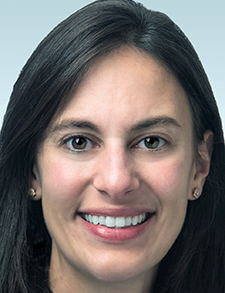
Dr. Cyrus
Dr. Rachel Cyrus is an associate professor of medicine at Northwestern University’s Feinberg School of Medicine in Chicago. Since 2012, she has been the clinical practice director for the division of hospital medicine at Northwestern. As part of her role, she’s overseen the expansion of hospitalists from 40 to more than 100 physicians and advanced practice practitioners (APPs) who provide care to 290 complex patients across 12 units daily.
She has facilitated numerous changes to the physician support and service structure, including the proposal and incorporation of APPs, the creation of staffing buffers, the shift to an admitter/rounder model, and the addition of a nurse role to help coordinate discharges. Even with rapid growth, hospitalist engagement scores have remained among the best in the past 20 years.
Dr. Cyrus currently serves as the first hospitalist chief of staff as well as associate chief medical officer for Northwestern Memorial Hospital in Chicago and participates in and leads numerous local quality committees.
Within SHM, she’s been a member of the Practice Management Committee since 2017 and is finishing her third year as chair. She’s also served as faculty and course co-director for the Practice Management Advanced Learning Courses at SHM Converge.
Clinical Leadership for NPs and PAs
Alexandra Gallant, PA-C
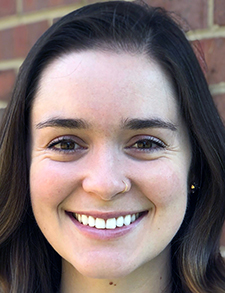
Dr. Gallant
Lexie Gallant graduated from the University of Colorado’s Child Health Associate/Physician Assistant Program in Aurora, Colo., and completed a fellowship in hospital medicine before joining the division of hospital medicine as faculty. As one of the lead APPs, Ms. Gallant has spearheaded discussions around APP promotion and mentorship, aided in the recruitment of numerous APPs and leaders, and assisted with onboarding the institution’s rapidly expanding hospitalist program.
Observing the lack of feedback post-training, she developed a division-wide peer feedback program for physicians and APPs to provide bidirectional feedback on clinical skills. With a strong desire to ensure her teammates thrive in the division, she became co-director of provider experience, where she collaborates with colleagues across the department of medicine on wellness-related initiatives.
She frequently advocates for her fellow hospitalists through practitioner experience rounds, where she discusses clinical and academic work and determines areas in need of improvement. Last year, she was awarded a grant aimed at improving practitioner workspaces for the institution’s medical-oncology urgent-care clinic.
Diversity, Equity, and Inclusion Leadership
Areeba Kara, MD, MS
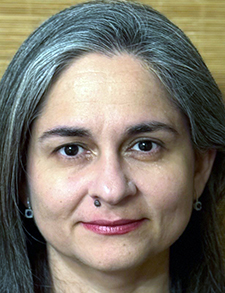
Dr. Kara
Dr. Areeba Kara was born and raised in Karachi, Pakistan, where she attended medical school at the Aga Khan University. She completed her internal medicine residency at the Indiana University School of Medicine in Indianapolis and joined IU’s Health Methodist Hospital as a hospitalist in 2003. She is an associate professor and currently serves as the associate division chief and director of faculty development for the division of general internal medicine and geriatrics.
She enjoys the challenges of clinical hospital medicine. Upon seeing missed opportunities for asking and answering research questions in hospital medicine, she sought further training in clinical research methods. Dr. Kara has served roles furthering diversity, equity, inclusion, and justice at local, regional, and national levels, including within graduate medical education, her division and department, SHM, and the HOMERuN collaborative.
She is also an assistant editor for the Joint Commission Journal on Quality and Patient Safety. Dr. Kara believes that hospitalists are uniquely positioned to tackle the complex and difficult issues of unconscious bias and healthcare disparities.
Excellence in Humanitarian Services
C. Nicholas Cuneo, MD, MPH
Dr. C. Nicholas Cuneo is board-certified in internal medicine and pediatrics with a background in refugee health, asylum medicine, and global health education. Dr.
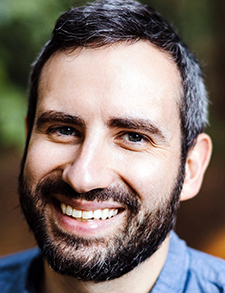
Dr. Cuneo
Cuneo is currently an assistant professor at the Johns Hopkins University School of Medicine. He works clinically as an attending med-peds hospitalist at Johns Hopkins Hospital and as a primary care physician to immigrant survivors of torture at Esperanza Center, both in Baltimore.
He is the founding medical director of HEAL Refugee Health & Asylum Collaborative in Baltimore, an organization that expands access to medicolegal, medical, and mental health services to forced migrants seeking refuge in the U.S. He also serves as co-lead of the national Asylum Medicine Training Initiative, which defines and disseminates best practices in the clinical evaluation of survivors of persecution seeking humanitarian protection.
Dr. Cuneo has lived and practiced abroad in diverse settings, including Mexico, Haiti, India, Lebanon, and South Africa. His work with asylum seekers in Baltimore and at the U.S.-Mexico border was the subject of a recent New England Journal of Medicine documentary.
He earned his BS at Duke University in Durham, N.C., his medical degree from Johns Hopkins in Baltimore, and his Master of Public Health from Harvard University in Cambridge, Mass. He completed the Harvard combined residency in medicine and pediatrics at Brigham and Women’s Hospital and Boston Children’s Hospital, both in Boston, and served as Global Health Equity Chief Resident.
Excellence in Research
Robert E. Burke, MD, MS, SFHM
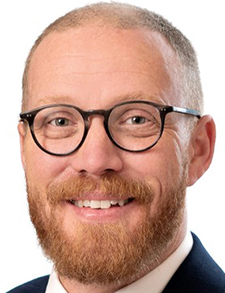
Dr. Burke
Dr. Robert Burke is a tenured associate professor of medicine and the associate chief for research in the division of general internal medicine and division of hospital medicine at the University of Pennsylvania in Philadelphia. He is also a core investigator in the Center for Health Equity Research and Promotion at the Corporal Michael J. Crescenz Department of Veterans Affairs Medical Center in Philadelphia.
Dr. Burke’s research seeks to reduce unnecessary hospitalizations and long-term nursing home care for frail older adults. He is leading a Veterans Affairs (VA) implementation science program center seeking to implement evidence-based practices aligned with the Age-Friendly Health System model.
He is the principal investigator of an Agency for Healthcare Research and Quality R01 research project evaluating differences in post-acute care use between Medicare Advantage and fee-for-service beneficiaries, as well as a National Institute on Aging R01 evaluating the intended and unintended effects of the Skilled Nursing Facility Value-Based Purchasing Program. He is also leading a VA R01 intended to help the VA build a high-value, post-acute, care network in skilled nursing facilities.
He has published more than 100 papers in his research area, including publications in the Journal of the American Medical Association, Health Affairs, and the Journal of Hospital Medicine. Dr. Burke matriculated from the Stanford University School of Medicine in Stanford, Calif., and completed his internal medicine residency at Brigham and Women’s Hospital in Boston.
Excellence in Teaching
Alfred Paul Burger, MD, MS, SFHM
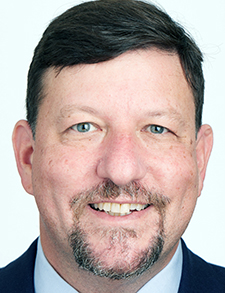
Dr. Burger
Dr. Alfred Burger is a professor of medicine and medical education at the Icahn School of Medicine at Mount Sinai and the senior associate program director for the internal medicine residency at Mount Sinai Beth Israel, both in New York.
As a practicing hospitalist, Dr. Burger frequently engages in teaching on the medical floors, focusing on clinical reasoning, high-value care, quality improvement, patient safety, and leadership skills for physicians.
As associate residency director, he restructured morning reports to focus on real-time case presentations with increased emphasis on problem representation and illness script formation. He’s instituted and enhanced the quality-improvement curriculum. Dr. Burger also established a high-value care resident committee. His initiation of review sessions for medical conference abstract submissions resulted in a sevenfold increase in abstract acceptances, with more than 700 presentations during his tenure.
During his 20 years as an educator, Dr. Burger has mentored hundreds of physicians who have gone on to successful careers. He has encouraged students and residents to take on academic projects, inspiring residents to develop successful publications, including in the Journal of Hospital Medicine’s “Things We Do for No Reason” section.
Dr. Burger was an inaugural member of SHM’s Physicians in Training Committee and helped pioneer the early-career track at SHM’s annual conference. As chair of SHM’s Digital Learning Committee, he assisted in the selection of the SHM education app. He is an active member of the SHM Education Committee and will serve as the chair of the Annual Conference Committee and course director for SHM Converge 2026. He also represents SHM on the Alliance for Academic Internal Medicine’s Internal Medicine Education Advisory Board.
Excellence in Management of Hospital Medicine
Eduardo Eschenbach
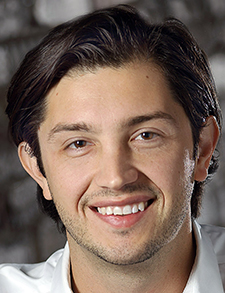
Mr. Eschenbach
Mr. Eschenbach has charted a professional journey marked by dedication to others and achievement in healthcare administration. Born in Mexico and raised in Guatemala, Mr. Eschenbach moved to Texas for high school and college, earning a BS in microbiology from the University of Texas, in Austin.
Upon graduation, Mr. Eschenbach played a crucial role in implementing health IT during the initial years of the Affordable Care Act, igniting a passion for healthcare administration. Before further pursuing this passion, he returned to Guatemala to give back to his childhood community by becoming a math teacher at a small non-profit middle school.
In 2016, Mr. Eschenbach moved to Baltimore, where he earned an MBA in healthcare management from the Johns Hopkins Carey Business School.
This paved the way for his entry into the Johns Hopkins University division of allergy in 2018, followed by the division of hospital medicine in 2020, during the COVID-19 pandemic. During this time, he proved himself as a solutions-oriented leader with a strong desire to help physicians who help heal communities.
Outstanding Service in Hospital Medicine
Steven Deitelzweig, MD, MMM, SFHM
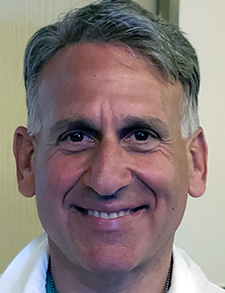
Dr. Deitelzweig
Dr. Steve Deitelzweig is the system chairman for hospital medicine at Ochsner Health System in New Orleans, a role he has held for more than 30 years. Dr. Deitelzweig founded the hospital medicine department at Ochsner Health and has overseen the development of a group of more than 250 physicians and advanced practice practitioners in a network of more than 20 healthcare facilities.
Following his time as chief resident of the internal medicine residency at Cornell University Medical College at NorthShore University Hospital in Manhasset, N.Y., Dr. Deitelzweig completed hepatology and vascular medicine fellowships at Ochsner. He then continued clinical practice as a hospitalist, starting in 1993, prior to the coining of the term “hospitalist.”
Dr. Deitelzweig has a longstanding record of leadership in hospital medicine, including disaster management during Hurricanes Katrina and Gustav in New Orleans. He also led the system through the COVID-19 pandemic.
He was a charter member of SHM. His work with SHM has positively impacted the field, including on the State of Hospital Medicine Survey and as a co-author of Key Principles and Characteristics of an Effective Hospital Medicine Group.
He has served as chair of the Practice Management, Practice Analysis, Annual Conference, and Leadership Committees, and was on SHM’s Board of Directors for a three-year term.
Dr. Deitelzweig also served as course director and lecturer for Southern Hospital Medicine and is a representative for SHM at the American Medical Association House of Delegates.
Junior Investigator Award
Paula Chatterjee, MD, MPH
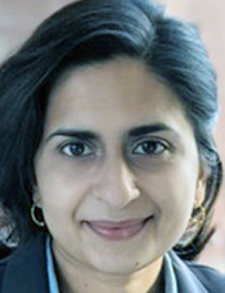
Dr. Chatterjee
Dr. Paula Chatterjee is an assistant professor at the Perelman School of Medicine and director of Health Equity Research at the Leonard Davis Institute of Health Economics at the University of Pennsylvania in Philadelphia. She is a hospitalist and health policy researcher whose work focuses on ensuring the viability of the healthcare safety net for low-income patients. She conducts rigorous empirical work on safety-net hospital financing and quality of care and the role of health policy in mitigating population health disparities.
Dr. Chatterjee’s research and viewpoints have been featured in the New England Journal of Medicine, the Journal of the American Medical Association, the Journal of Hospital Medicine, and the American Journal of Public Health. Her work has had important policy impact at both state and national levels.
Dr. Chatterjee has testified for the Pennsylvania House of Representatives Subcommittee on Health on the role of payment policy in ensuring hospital viability and conducted research with state policymakers to measure the administrative burden associated with a Medicaid work requirement.
Her work on safety-net hospital financing has influenced discussions held by the Medicare Payment Advisory Commission and the Medicaid and CHIP Payment & Access Commission, both of which advise Congress on healthcare payment policy.
Dr. Chatterjee completed her residency and chief residency at Brigham and Women’s Hospital in Boston. She received her medical degree from Harvard Medical School in Cambridge, Mass., and her Master of Public Health and undergraduate degrees from Yale University in New Haven, Conn.